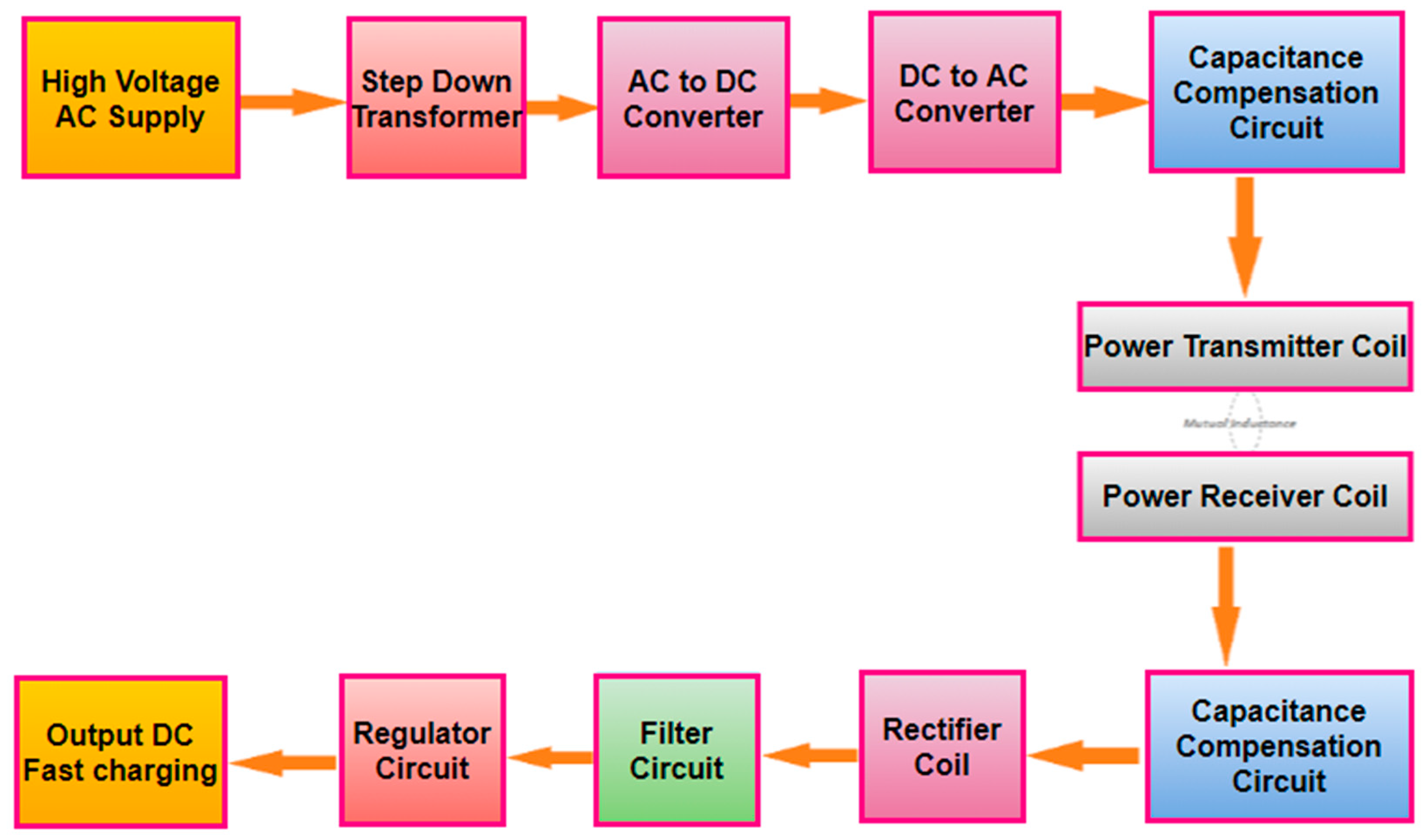The voltage of a fully charged car battery is around 12.6 to 12.8 volts. A fully charged car battery typically has a voltage of 12.6 to 12.8 volts.
This voltage indicates the battery is at its optimal charge level and ready to power the vehicle’s electrical systems efficiently. A car battery is a crucial component of a vehicle’s electrical system, providing the necessary power to start the engine and operate various electrical components.
Understanding the voltage of a fully charged car battery is essential for ensuring the proper functioning of the vehicle. We will explore the significance of the voltage of a fully charged car battery, its impact on the vehicle’s overall performance, and the importance of regular maintenance to preserve the battery’s optimal charge level.
By the end, you will have a comprehensive understanding of the voltage of a fully charged car battery and its implications for your vehicle’s operations.
Understanding Car Batteries
A fully charged car battery typically has a voltage of around 12. 6 to 12. 8 volts. This voltage is crucial for the vehicle’s electrical system to function correctly and for its ability to start the engine smoothly. Understanding car batteries and their voltage is essential for maintaining your vehicle’s performance.
Understanding Car Batteries
Car batteries are a crucial vehicle component, providing the electrical energy necessary to start the engine, power the lights, and operate various electronic devices. Understanding the voltage of a fully charged car battery is essential for ensuring optimal performance and longevity. Let’s delve into the components and functions of car batteries to gain a comprehensive understanding.
Components of a car battery
The typical car battery comprises six cells, each generating around 2.1 volts, resulting in a total voltage of approximately 12.6 volts when fully charged. These cells are constructed using lead plates submerged in an electrolyte solution, usually a combination of sulfuric acid and water.
The positive and negative plates, separators, and electrolytes work together to facilitate the flow of electrons, generating electrical power for the vehicle.
The function of car battery
The primary function of a car battery is to provide the initial surge of power required to start the engine. Once the engine runs, the alternator recharges the battery and supplies power to the vehicle’s electrical systems. This constant cycling between the battery and alternator ensures that all electrical components receive a steady power supply, maintaining the vehicle’s operation.
In summary, understanding the voltage of a fully charged car battery, along with its components and function, is crucial for maintaining the optimal performance of a vehicle. By comprehending these fundamental aspects, drivers can effectively monitor and manage their car batteries to minimize disruptions and ensure reliable operation.

Credit: www.sciencedirect.com
Voltage And Car Batteries
Voltage plays a crucial role when it comes to understanding car batteries. The voltage of a car battery indicates the electrical potential difference between its positive and negative terminals. It measures the pressure exerted by the battery’s stored electrical energy.
Definition Of Voltage
Voltage is the force that pushes the electric charge through a conductor. In the case of car batteries, it measures the energy potential within the battery, commonly expressed in volts (V). A fully charged car battery usually has a voltage reading between 12.6 and 12.8 volts.
Importance Of Voltage In Car Batteries
The voltage of a car battery is vital for providing the necessary electrical power to start the vehicle’s engine and operating various electrical systems and components, such as lights, radio, and air conditioning. Proper voltage levels are essential for reliable performance and to ensure the efficient functioning of these electrical systems.
Voltage Of A Fully Charged Car Battery
A car battery plays a crucial role in powering the electrical components of a vehicle. The voltage of a fully charged car battery determines its ability to provide the necessary electrical energy for the vehicle to start and function optimally. Understanding the factors that affect the voltage of a car battery and the typical voltage range for a fully charged battery is essential for car owners and enthusiasts alike.
Factors Affecting Voltage
The voltage of a fully charged car battery can vary depending on various factors. These factors include:
- The battery capacity: Batteries with higher capacity tend to have a higher voltage.
- Temperature: Extreme temperatures can affect the battery’s voltage, with colder temperatures reducing the voltage and warmer temperatures increasing it.
Typical Voltage Range For Fully Charged Car Batteries
A fully charged car battery typically ranges between 12.6 and 12.8 volts. This voltage range signifies the battery’s optimal condition and ability to deliver the necessary power to start the vehicle consistently.
It is important to note that the voltage of a car battery may drop slightly after extended periods of use or during extreme weather conditions. Still, it should remain within the acceptable range for optimal performance.

Unveiling The Power Source
Welcome to the world of car batteries! Today, we will delve into the fascinating topic of the voltage of a fully charged car battery. The voltage of a car battery is an essential factor determining the power it can provide to start your vehicle and operate various electrical systems.
In this blog post, we will explore how car batteries get charged and the effect of chargers on their voltage.
How Car Batteries Get Charged
Car batteries are predominantly charged by a process known as “discharge and recharge.” When your car’s engine runs, the alternator recharges the battery. The alternator converts mechanical energy from the engine into electrical energy, which is then used to charge the battery.
During this charging process, the voltage of the car battery gradually increases. Most car batteries have a standard voltage range of 12.6 to 12.8 volts when fully charged. This range may vary slightly depending on the battery type, temperature, and other factors.
Effect Of Chargers On Voltage
Using a charger is another standard method to recharge a car battery. Chargers are designed to supply a controlled amount of electrical power to the battery, effectively replenishing its energy. When connected to a charger, the voltage of the battery will experience a gradual increase until it reaches its fully charged state.
It’s important to note that the charging voltage can vary depending on the charger used. Chargers may have different voltage settings, typically 12 to 14 volts. The charging voltage should match the specifications recommended by the battery manufacturer to ensure optimal performance and prevent damage.
Overcharging a battery by applying too high voltage can lead to severe consequences. It may cause the battery to overheat, lose electrolytes, or even explode. Conversely, undercharging the battery by not reaching the required voltage can reduce battery capacity and decrease overall lifespan.

Credit: www.mdpi.com
What should a 12-volt battery read when fully charged
A fully charged 12-volt lead-acid battery should read around 12.6 to 12.8 volts. Remember that the electrolyte’s specific gravity and surface charge can temporarily affect the voltage reading.
Measuring the voltage after the battery has been at rest (not charging or discharging) for a few hours is recommended to get an accurate reading of its state of charge. If the voltage is significantly lower than 12.6 volts, the battery may not be fully charged, and if it’s consistently higher, it might be due to a surface charge.
Normal battery voltage when the car is off
When a car is turned off and the battery is not being charged or discharged, a standard voltage for a fully charged 12-volt lead-acid battery is typically around 12.6 to 12.8 volts. This voltage is considered the open circuit or resting voltage, measured after the battery has had some time to stabilize without any charging or discharging activities.
It’s important to note that if the battery voltage is significantly lower than this range, it may indicate that the battery is not fully charged or experiencing issues. If the voltage is consistently higher, it might be due to a surface charge, which can occur immediately after charging and may dissipate with time.
If you’re concerned about your car’s battery health, especially if you experience starting issues, it’s advisable to have the battery tested or inspected by a professional.
What car battery voltage is too low
A car battery voltage below 12.2 volts is generally considered too low. When a 12-volt lead-acid battery drops below this voltage, it may struggle to start the vehicle reliably. A fully charged and healthy car battery should ideally have a voltage between 12.6 and 12.8 volts when the vehicle is off and has had some time to rest.
If the voltage drops below 12.2 volts, it could indicate that the battery is not holding a sufficient charge or may be experiencing other issues. If your battery consistently falls below this level or you’re having trouble starting your vehicle, it’s recommended to have the battery tested and, if necessary, replaced.
Keep in mind that other factors, such as temperature and the age of the battery, can also impact its performance. If you’re unsure about your battery’s state, it’s a good idea to consult a professional mechanic.
Frequently Asked Questions For What Is The Voltage Of A Fully Charged Car Battery
What Is The Voltage Of A Fully Charged Car Battery?
The voltage of a fully charged car battery is typically around 12. 6 volts. This level ensures the battery is at its optimal state and ready to power the vehicle’s electrical system. It’s essential to regularly check and maintain the battery’s voltage to ensure its longevity and performance.
How Long Does It Take To Charge A Car Battery Fully?
The time it takes to charge a car battery entirely can vary depending on several factors, such as the type and capacity of the battery, the charging method used, and the battery’s current charge level. Generally, a standard charger can take overnight hours to charge a car battery fully.
Can A Car Battery Be Overcharged?
A car battery can be overcharged if continuously charged with a higher voltage than its recommended level. Overcharging can cause the electrolyte in the battery to boil and damage the internal components.
Following the manufacturer’s instructions and using a compatible charger is essential to avoid overcharging the battery.
How Often Should I Check My Car Battery’s Voltage?
It is recommended to check your car battery’s voltage at least once every three months. Regular voltage checks can help identify potential issues with the battery’s health and charging system.
Additionally, it is essential to check the voltage before long trips or during extreme weather conditions to ensure the battery’s optimal performance.
What is the voltage of a fully charged 12V car battery?
The voltage of a fully charged 12V car battery is around 12.6 to 12.7 volts.
What voltage should a 100% charged car battery be?
The voltage of a fully charged 12V car battery is around 12.6 to 12.7 volts.
Is 12.4 volts OK car battery?
A voltage of 12.4 volts for a car battery is considered relatively low and may indicate a partially discharged state. A fully charged 12V car battery typically measures around 12.6 to 12.7 volts. If your battery consistently reads 12.4 volts or lower, it may require charging or testing to ensure it is in good condition.
What is the average voltage for a car battery when charging?
The average voltage range is typically between 13.8 and 14.4 volts when charging a car battery. This voltage level allows for effective charging without overcharging the battery. It’s important to note that specific values may vary slightly depending on the charging system and the type of battery.
What should a 12v battery read when fully charged?
A fully charged 12V battery should read around 12.6 to 12.7 volts. This voltage level indicates that the battery has reached its maximum charge capacity. Keep in mind that slight variations can occur based on the battery and environmental conditions.
Is 14.2 battery voltage good?
Yes, a battery voltage of 14.2 volts is generally considered good when the battery is being charged. This voltage level falls within the typical charging range for a 12V battery.
It indicates that the charging system provides an appropriate charge to the battery without overcharging. It’s important to note that specific charging voltages can vary depending on the type of battery and the charging system used.
At what voltage is a 12v battery empty?
The voltage of a 12V battery is considered empty or fully discharged when it falls to around 10.5 volts. It’s important to note that regularly discharging a lead-acid battery, such as a typical 12V car battery, to this low voltage level can lead to damage and reduce the battery’s overall lifespan. If a battery reaches this low voltage, it’s advisable to recharge it as soon as possible to avoid potential damage.
Conclusion
To summarize, the voltage of a fully charged car battery typically ranges between 12. 6 and 12. 8 volts. It’s crucial to monitor the battery’s voltage as it affects the overall performance of your vehicle. Remember that a well-maintained battery ensures a reliable and efficient driving experience.
Regularly checking and maintaining your car battery’s voltage is essential for its longevity and optimal functionality.

I am a technology Specialized writer and blogger based in the USA & UK. I have four years of experience in Technology, Social Media and all types of Battery’s like Solar Battery,Car Battery,Lithium Battery etc. So I work on solving these issues and give various tips on these issues.
